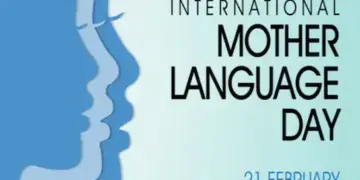By: Zahra Sajaud
There is no doubt in asserting that development is not possible without education. Among all major indices of development, like, HDI (Human Development Index), education is counted as a major factor. In Kashmir, decades of darkness have overshadowed whatever growth we could achieve. With it, the miles we were yet to tread towards development were compromised at each step. Whatever little development took place was concentrated to cities, with villages never seeing the light of day.
According to the Census of India 2011, out of the total population of Jammu and Kashmir, around 72.62 percent live in villages. When it comes to literacy rate, it is just 63% in comparison to 77% percent for urban Jammu and Kashmir. This means that majority of our population, which lives in villages, is less literate than people living in the cities.
The reason is evident from the lack of good educational infrastructure in rural areas. Where private institutions are doing great in urban literacy, education in rural areas relies mostly on state run schools. Education imparted in these schools has umpteen deficiencies, ranging from poor or no infrastructure to dearth and irregularity of staff. Students who are not fortunate enough to afford and access private institutions (mostly located in cities) are quick to drop-out, or even stay illiterate. Thus, such a population has the tendency to remain trapped in a vicious circle of poverty and underdevelopment, where people are not able to afford education, and therefore development is in disarray.
Working in-field for a month now and closely observing the phenomenon, I came to attest the notion that to realise any constructive work in a community, power and resources have to be derived from the community itself. And, in rural communities, teachers working in a government school (being the educated resource of the area they are placed in) can play the role of bridging the gap between education and development.
The factor of illiteracy in rural communities is maintained more because of the approach of people towards their child’s upbringing. They tend to have less faith in education and more in meeting their immediate needs. This ultimately results in them sending their children away to earn or marry, depriving them of schools and dreams. This approach of rural communities could be corrected if teachers go out of the way, not just to deliver lessons in classrooms, but also for the noble task of community work. They could convince and counsel parents to enrol their children in schools, and consider their future stability.
As part of community work, these teachers could sensitize masses on different social issues, and engage the community through parents or religious heads in different constructive works, thus effectively mobilising the whole area.
While in theory, we exert that government teachers in Kashmir should take the extra responsibility of community upliftment, however, in practice, we come to face the harsh reality that these teachers are notorious for not even performing their primary duty, i.e. teaching. Year after year, depressing board results from government school students, and sheer carelessness of teachers is showcased. This happens even when the government devotes a large number of resources to the education sector, taking care of the child’s need in every form, from feeding the child to providing books and uniform free of cost. Everything is borne by the state, still the results are depressing.
The teachers recruited for this sector, considered the best of human resources, are not able to produce satisfactory results, wasting funds and putting at stake the future minds of the nation.
If we calculate the aggregate amount spent on a government school student, it amounts to much more than a student studying in a private school! The irony is that parents of the former children, usually belonging to the marginalised strata, are not educated or empowered enough to raise concerns against such injustice. This further escalates the problem.
This could be corrected only if government teachers in rural communities acknowledge their primary role of educating vulnerable children. Meanwhile, they could work on bridging the rural-urban literacy gap. For overall development, teachers have to undertake this extra responsibility of sensitising and mobilising the community. They can achieve this by reaching out to people, making them aware about different ways of overcoming their social and economic problems, and guiding the needy to resources and institutions in the form of schemes and policies. They can also bring to attention different developmental needs in villages by guiding the community members to properly approach government authorities. Using their education and knowledge, which is rare in rural communities, they can push the whole population towards growth, while helping sustain it by educating the whole community. This, obviously, includes more than just ensuring the literacy of children.
Teachers are nation-builders. To actualise this in Kashmir, teachers have to make reasonable contributions in bottom-up development. With the whole order disturbed and broken at a macro level, teachers, in their small assigned pockets, can ensure massive changes simply by tapping the community resources for community good.
The author is a postgraduate in Social Work from University of Kashmir. You can reach her at sajaudzahra@gmail.com





